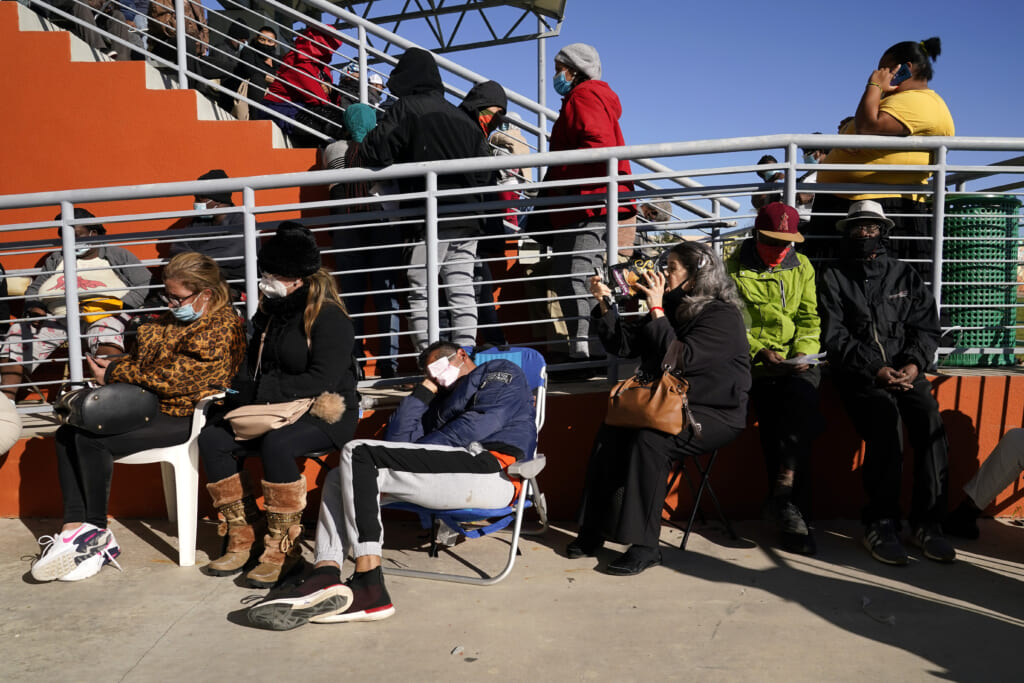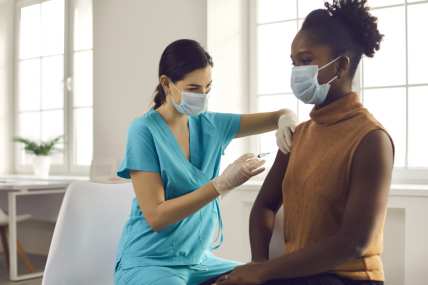Florida COVID hospitalizations rise, low vaccination rates cited
Coronavirus related admissions are up in the state as rural counties continue to fall below state vax average
Florida’s COVID-19 hospitalizations and cases again jumped significantly this week as the vaccination rate in rural counties where some of the worst outbreaks are occurring remains well below the state and national averages.
About 5,300 Floridians are now hospitalized with COVID, a 65% jump since last week and nearly a tripling since June 14 when 1,845 were hospitalized, the Florida Hospital Association said. Officials have said more than 95% of those hospitalized were not vaccinated.
About 60% of residents 12 and older are vaccinated, according to the state, equal to the national rate. But the percentage of vaccinated adults remains low in the state’s rural, strongly conservative north, where some counties are at about 30% as residents don’t trust the vaccination program but have high infection rates.
More than 73,000 new coronavirus cases were reported statewide over the past week, according to the state health department, nearly seven times the 12,000 reported a month ago. Florida’s numbers had been falling since mid-January when 100,000 new cases per week were reported and 8,200 were hospitalized just as the vaccination program began.
“This thing got politicized nationally, and we’re paying the price,” said Jared Moskowitz, the state’s former emergency management director. “This is mostly now a pandemic amongst the unvaccinated.”
Republican Gov. Ron DeSantis, who has been vaccinated, this week encouraged the remaining unvaccinated Floridians to get their shots.
“If you are vaccinated, fully vaccinated, the chance of you getting seriously ill or dying from COVID is effectively zero,” DeSantis said. “These vaccines are saving lives.”
More than 38,000 Floridians have died with COVID-19 since the pandemic began in March 2020, including an average of 33 per day over the past week. That’s compared with 24 per day earlier this month. In late January, 185 Floridians per day were dying.
Still, despite the recent surge, DeSantis said the state will not return to government mandates — in May, he barred municipalities from imposing their own and banned businesses from requiring proof of vaccination. He said it is up to individuals on how they deal with the pandemic.
“We have a situation where we have three vaccines that have been widely available for months and months now and people need to make decisions that are best for them,” he said. “To have the government come in and to lock anyone down or restrict anyone is totally unacceptable.”

The state’s Democrats and their allies said that is the wrong approach and accused him of putting his 2022 reelection campaign and possible 2024 presidential run ahead of Floridians’ health. They want cities and counties to be able to again impose their own mandates and restrictions such as requiring masks in indoor public places.
“The surge is … being facilitated by misguided orders from Tallahassee that block local leaders and businesses from pro-actively protecting individuals from unnecessary exposure,” the 10 Democratic members of Florida’s congressional delegation wrote in a letter to DeSantis.
Florida doctors affiliated with the Committee to Protect Health Care, a progressive group, criticized DeSantis for attacking Dr. Anthony Fauci, the nation’s top government infectious disease official who has pushed for more cautious policies than the governor.
They said DeSantis’ recent mocking of Fauci’s errant first pitch at a Washington Nationals game a year ago and his reelection campaign’s sale of merchandise emblazoned with “Don’t Fauci my Florida” detracts from the serious message he should send about the virus. They accused him of dividing Floridians on an issue that should unite them.

“Why is he undermining infectious disease experts and their recommendations? The consequences of (his) leadership has been a steep rise in COVID-19 cases and an increased number of Floridians dying,” said Dr. Frederick Southwick, chief of the University of Florida medical school’s infectious disease division.
DeSantis has argued that his COVID leadership has been effective, protecting nursing home patients, seniors and others of the most vulnerable.
Because of the new outbreak, several hospitals across the state are reinstituting visitation restrictions. Jackson Health, the state’s largest provider, has barred visitors for most of its patients at its hospitals. Others are limiting visitors to one per patient. AdventHealth in central Florida has temporarily stopped doing inpatient elective surgeries.
Jackson said it had 143 COVID-19 patients this week compared with 66 in early July, a 117% increase.
Dr. Lilian Abbo, head of Jackson’s infectious disease prevention program, believes most of those becoming ill are infected with the delta variant as they are becoming sicker faster than with earlier strains of the coronavirus. They are also not seniors and other groups that were previously prevalent.
“We are seeing younger people in their 20s and 30s with not much risk factors — not obese, not diabetic — coming in very sick,” Abbo said. “Some of them requiring potential lung transplants.”
Calvan reported from Tallahassee, Florida.
Have you subscribed to theGrio’s new podcast “Dear Culture”? Download our newest episodes now!
TheGrio is now on Apple TV, Amazon Fire, and Roku. Download theGrio today!


